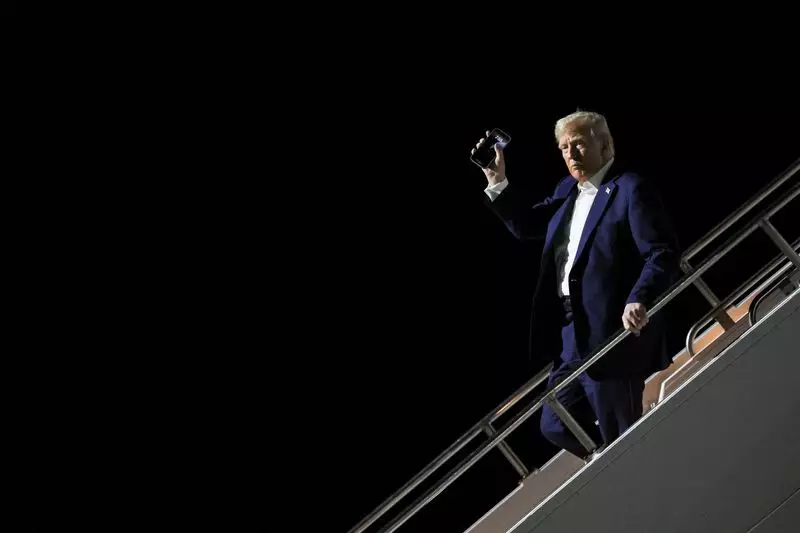President Donald Trump’s recent return to office set the stage for a whirlwind of activities right from the start. His first week showcased his commitment to reversing many of the policies laid out by his Democratic predecessor, President Joe Biden. This push for change aims to streamline the federal government and reshape it according to his vision. However, amid this tumultuous adjustment, his latest visit to Las Vegas has become a focal point of his agenda—a discussion about cutting taxes on tips, closely tied to his campaign promise aimed at the hospitality sector.
Las Vegas, a city known for its gambling and hospitality industries, was not a random backdrop for Trump’s return; it is emblematic of his broader aspirations regarding economic reform. The hospitality industry in Nevada employs a significant portion of the workforce, and Trump’s emphasis on tax cuts directly targets this demographic. This focus begs the question: will these policy shifts truly benefit the working class, or merely serve as temporary political rhetoric?
Trump’s declaration about cutting taxes on tips stems from a campaign strategy that emphasized his concern for service workers, a vital aspect of Nevada’s economy. During his speeches on inauguration day, he reminisced about pivotal moments in his campaign, particularly his promise to eliminate taxation on tips and overtime pay. Michael McDonald, the chair of the Nevada Republican Party, highlighted the resonance of this proposal among locals struggling with soaring living costs. However, the question remains whether such tax cuts are sustainable or merely a short-term fix designed to garner immediate support.
While the intention behind these tax cuts appears favorable, a closer examination reveals significant economic implications. Estimates indicate that extending the tax cuts could add upwards of $7.5 trillion to the national debt over the next decade. This staggering figure raises intricate questions of fiscal responsibility and long-term economic impact. Trump’s government’s approach to addressing fiscal policies through tax cuts may have detrimental effects, jeopardizing the economic future of many Americans.
Trump’s bold financial maneuvers have not gone unnoticed. Within the Republican circles, concerns about the sustainability of these tax cuts are already surfacing. Some members of Congress have expressed worry that the proposed $4 trillion extension of Trump’s previous tax cuts could threaten the government’s ability to manage its increasing national debt—currently hovering around $36 trillion. In private meetings, leading Republicans voiced their fears about the potential fallout of such aggressive fiscal policies amidst a volatile bond market.
Moreover, Trump’s plan includes using revenue from higher tariffs on imports to fund these potential tax cuts—a strategy likely to face internal opposition. Tariffs can fluctuate based on international relations and market conditions, leading to unpredictable revenue streams that may not reliably support Trump’s expansive tax initiatives. This introduces an element of risk that could undermine his broader economic agenda.
As Trump embarks on this ambitious agenda, the complex interplay between tax cuts, public finance, and economic stability becomes increasingly evident. His return to the White House has reignited debates around fiscal policy that could shape the U.S. economic landscape for years to come.
The overarching question remains: are these tax cuts a legitimate effort to assist the working class, or are they merely a tactic to energize Trump’s political base ahead of the 2024 elections? The forthcoming months will reveal the practical ramifications of these policies as they are either enacted or met with resistance within the corridors of power.
Trump’s efforts to alter the economic narrative through tax cuts demonstrate his intent to engage directly with the challenges facing American workers. However, whether these proposals come to fruition or contribute further to national debt will be critical in evaluating the success of his second term. The moments ahead are critical as they will ultimately determine the balance between fiscal responsibility and populist policy making.

